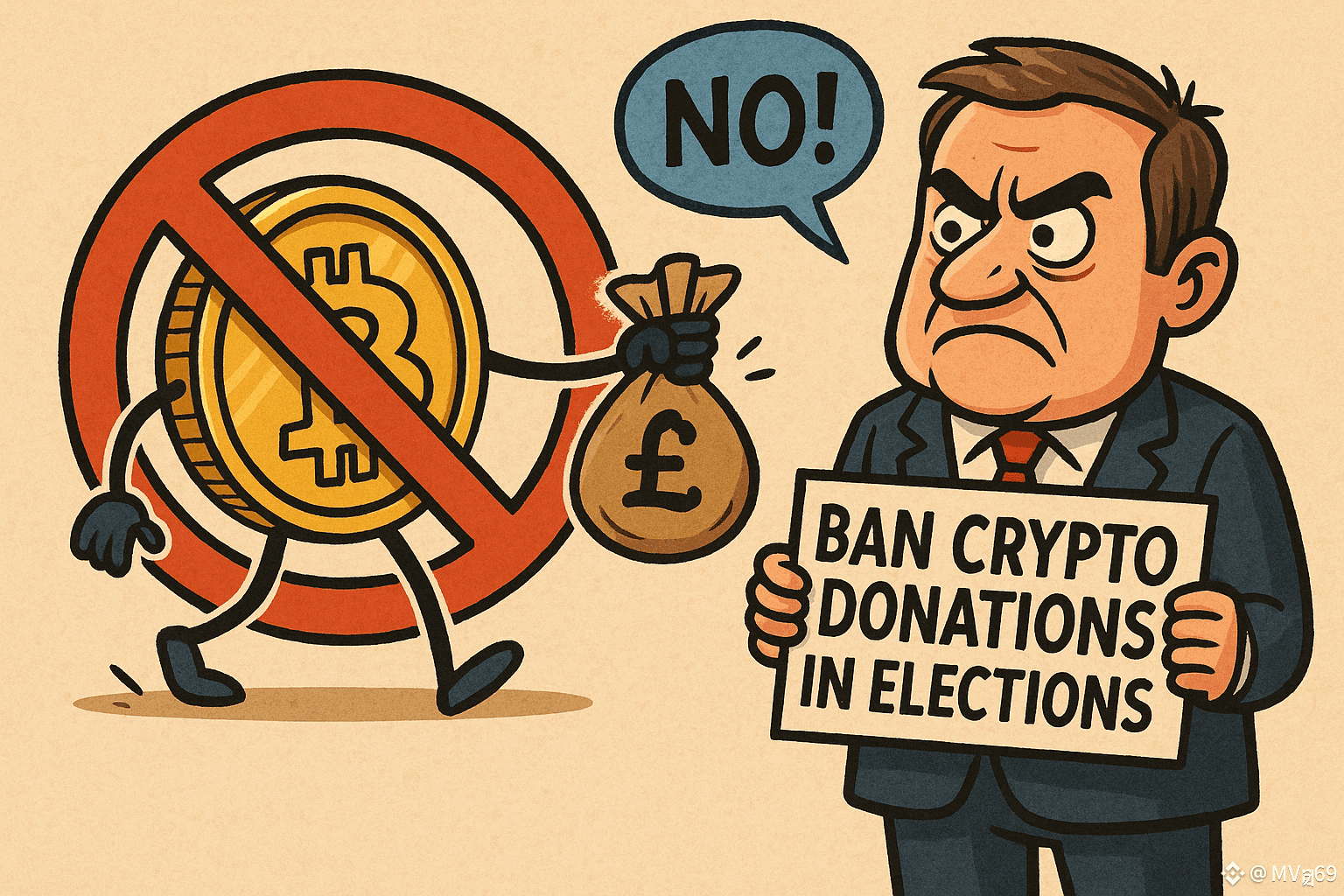
Disclaimer: This article aims to inform rather than advise. Always carry out your own research and assess risk when engaging in high velocity, speculative markets.
UK lawmakers are advancing a proposal to prohibit political donations via cryptocurrencies, citing concerns about transparency and potential foreign interference. The move follows the announcement by Reform UK last month that it would begin accepting #Bitcoin donations, sparking wider debates about crypto’s role in democratic financing.
Why This Is Happening
Challenges in Traceability
#Cryptocurrencies lack clear identity disclosure, making it difficult to confirm the true source of donations. MPs argue this opens the door to malicious or foreign funds influencing UK elections.Protecting Electoral Integrity
With an increasing number of UK adults now owning digital assets, the risk of unregulated money entering politics grows. Ministers state that donation systems must remain transparent and trustworthy.
Political Response
Key figures in Parliament have urged a swift update to existing laws to keep pace with emerging technologies. They emphasise the importance of verifying donor identities and knowing the provenance of contributions.
One minister highlighted the need for the Electoral Commission and National Crime Agency to receive greater resources to enforce stricter checks and ensure accountability across all donations, including those in crypto.
Labour MPs have also called for a ban on donations from opaque sources, such as certain unincorporated associations, and for tough action against shell companies used to mask foreign contributions.
The Global Context
The UK is not alone in addressing this issue. Ireland and several US states, including Oregon and Michigan, have already banned crypto based political donations. Critics worry that in countries with weaker oversight, digital donations may be exploited to funnel illicit funds into campaigns.
What Reform UK Has Done
Reform UK became the first mainstream British party to accept Bitcoin contributions. While it pledged to follow Electoral Commission rules and ban anonymous gifts, its move has prompted renewed scrutiny. Anti corruption groups argue that without robust traceability, cryptocurrency donations may be used in “future political interference schemes”.
Next Moves
Parliament is expected to debate comprehensive reforms this summer. Proposed measures include:
Banning crypto donations outright.
Requiring tighter checks on company funders, ensuring genuine UK revenue.
Enhancing powers and funding for electoral regulators and law enforcement.
Closing loopholes that allow unincorporated groups or shell firms to donate without proper scrutiny.

Final Word
The UK is facing a pivotal moment. As crypto adoption grows, so too do the concerns that it could be misused in democratic processes. A ban on political donations in cryptocurrency is gaining momentum, reflecting a desire to safeguard electoral transparency and public confidence. Any legislation passed will mark a significant step in regulating the evolving frontier of digital political financing.

